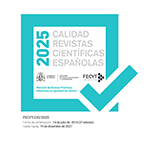The Sounds of Babel: Staging American Ethnic Diversity in Early Nineteenth-Century New Orleans
Abstract
In the early nineteenth century, Noah Webster proclaimed the existence of an American voice, distinct from the British one from which it originated. But was there really a single American voice? Could there be American voices? This paper examines the possibility of a multiplicity of voices. The main stage is New Orleans, although not the musical stage as might be expected. In early American New Orleans, indeed, travelers and sojourners described the city through its sounds, always qualified as both unusual and specific. To narrate their encounter with the city, most foreigners used the same metaphors—Babel, frogs in a marsh, noises specifically connected to one nation or another. This paper examines the way in which newcomers to early American New Orleans staged the city’s ethnic diversity in their narratives by referring to sounds and voices, suggesting that, instead of the single American voice Webster had hypothesized, the early nineteenth century was one of voices which could, however, be called American.Downloads
Article download
License
In order to support the global exchange of knowledge, the journal Complutense Journal of English Studies is allowing unrestricted access to its content as from its publication in this electronic edition, and as such it is an open-access journal. The originals published in this journal are the property of the Complutense University of Madrid and any reproduction thereof in full or in part must cite the source. All content is distributed under a Creative Commons Attribution 4.0 use and distribution licence (CC BY 4.0). This circumstance must be expressly stated in these terms where necessary. You can view the summary and the complete legal text of the licence.









